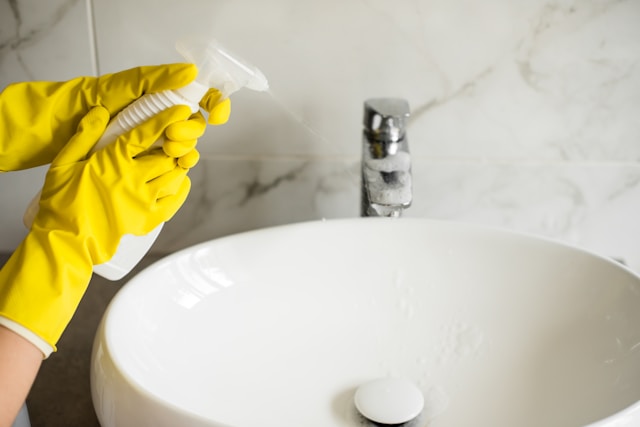The Basics of Bathroom Plumbing: Key Guidelines for First-Time Home Buyers
The Basics of Bathroom Plumbing: Key Guidelines for First-Time Home Buyers
Blog Article
Right here on the next paragraphs you might get lots of dependable guidance in relation to Smart Plumbing Tips for New Homeowners.

For new house owners, understanding and keeping restroom plumbing can save both time and money by preventing costly issues down the line. Here are some important shower room pipes tips to assist you maintain everything running smoothly.
Familiarize Yourself with the Main Shut-Off Valve
Knowing where the main water shut-off valve is located in your home is vital. This enables you to swiftly shut off the water system in case of significant leakages or throughout pipes emergencies, avoiding comprehensive water damage.
Routinely Check for Leaks
Tiny leakages can cause huge problems. Routinely check under sinks, around bathrooms, and near plumbing components for any kind of indications of leaks. Search for dampness, tiny drips, or rust. Capturing and fixing leaks early can avoid more significant damage and conserve water.
Don't Disregard Slow Drains Pipes
If your sink or bath tub is draining slowly, it's frequently a sign of an obstruction developing. Addressing this very early can stop a total blockage. Use a bettor or a plumbing professional's serpent to clean out particles. Avoid utilizing chemical drain cleansers as they can damage your pipes over time.
Know What Not to Flush
Commodes are not garbage disposals. Prevent purging anything aside from toilet paper and human waste. Things like wipes, feminine health products, and cotton bud need to be gotten rid of in the trash to avoid clogs and drain backups.
Set Up Strainers in Drains
Location filters in your sink and tub drains to capture hair and various other debris prior to they enter your plumbing system. Cleansing the strainers regularly will help prevent accumulation and maintain water flowing freely.
Preserve Your Hot Water Heater
Ensure your water heater is set to a suitable temperature (normally around 120 levels Fahrenheit) to stop scalding and minimize power usage. Flush the storage tank each year to remove sediment accumulation, which can lower the effectiveness and life-span of your heater.
Upgrade Your Fixtures
If your home has older components, consider updating to much more reliable designs. Modern commodes, showerheads, and taps are designed to utilize much less water while providing great pressure, which can substantially lower your water costs and ecological footprint.
Be Cautious with Do It Yourself Pipes Fixes
While it's alluring to take care of all home repairs on your own, be cautious with pipes. Some problems may call for professional experience, particularly if they involve primary water lines or sewage system repairs. Hiring a professional can sometimes be more economical than DIY, particularly if it avoids additional damage.
Prepare for Cold Weather
Safeguard your pipes from freezing throughout winter by protecting pipes in unheated areas like basements, attics, and garages. Throughout severe chilly, let cold water drip from faucets served by revealed pipes to aid protect against cold.
Arrange Routine Maintenance
Consider organizing annual assessments with a certified plumber. They can spot problems that you may miss, such as hidden leakages or wear and tear on pipelines and fixtures. Normal upkeep assists expand the life of your pipes system and can stop emergencies.
Verdict
Understanding and maintaining your home's shower room pipes can stop numerous common problems. By adhering to these crucial pointers, you can guarantee your restroom remains useful and effective, conserving you money and time in the long run.
Essential Plumbing Tips for Homeowners: Keep Your Pipes Flowing Smoothly
As a homeowner, understanding the basics of your plumbing system can save you time, money, and a lot of headaches. Plumbing issues can range from minor annoyances like dripping faucets to major problems like burst pipes that cause significant damage. This guide provides essential tips to help you maintain your plumbing system and tackle common issues.
Understanding Your Plumbing System
Supply System: Brings fresh water into your home from a municipal source or a well. Drain-Waste-Vent System: Removes wastewater and vents sewer gases outside. Fixtures and Appliances: Includes sinks, toilets, showers, dishwashers, and washing machines. Basic Maintenance Tips
Regular Inspections: Periodically check for leaks, corrosion, and other signs of wear and tear. Look under sinks, around toilets, and near water heaters. Know Your Main Shut-Off Valve: In case of a major leak, you’ll need to shut off the water quickly. Ensure everyone in your household knows where the main shut-off valve is located. Prevent Frozen Pipes: In cold climates, insulate exposed pipes and let faucets drip during extreme cold to prevent freezing. Use Strainers: Install strainers in sinks and tubs to catch hair, food particles, and other debris that can cause clogs. Common Plumbing Issues and Solutions
Clogged Drains:
Prevention: Avoid pouring grease down the drain and use drain screens to catch debris. DIY Fix: Use a plunger or a plumbing snake to clear minor clogs. For stubborn clogs, a mixture of baking soda and vinegar can sometimes help. Leaky Faucets:
Prevention: Replace washers and seals regularly. DIY Fix: Turn off the water supply, disassemble the faucet, and replace worn parts.

Quote Report this page